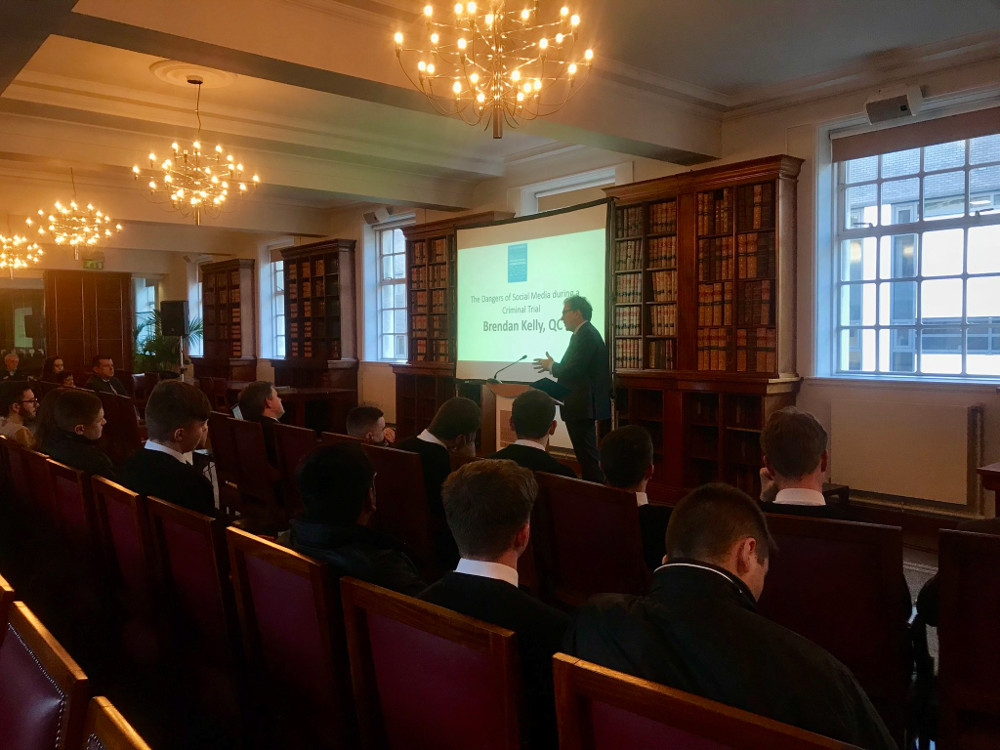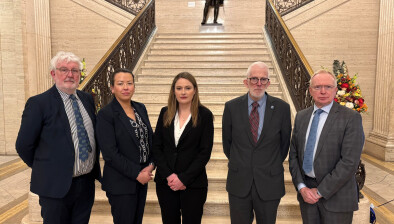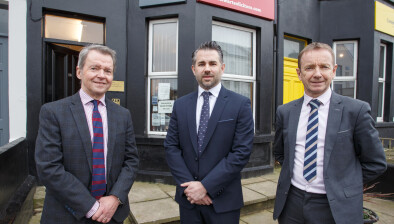NI: Brendan Kelly QC warns misuse of social media threatens future of jury trials

Misuse of social media poses a new threat to the criminal justice system because of the influence of unchallenged commentary on already vulnerable juries, a leading barrister has warned.
Brendan Kelly QC, who acted for one of the defendants in the high-profile Belfast rape trial earlier this year, told the fourth annual Belfast Homecoming Legal Symposium that “juries are vulnerable, they need direction, and do not always follow the direction not to listen to others”.
He said that there have been “a succession of cases in England and Wales” where, for example in a recent murder case, the content of social media “was so vile” that a jury could not be impanelled that year. He said that the only jurisdiction the court had when a jury was eventually impanelled, “was to prohibit Facebook dealing in any way, shape, or form with the topic of the trial and closing down portals within which those who were so inclined would otherwise have written”.
Mr Kelly said that, “contrary to popular belief”, the courts are armed to protect the trial process by the Contempt of Court Act 1981. He explained that there are offences of strict liability applicable to all publications, for example text messages are “clearly within the scope of the legislation”.
Mr Kelly opined that, “for the most part”, the press understand and adhere to the contempt of court rules under threat of prosecution and hefty fines, but that the people who don’t understand it are the public who make up social media.
Referring to Sir John Gillen’s preliminary report into the law and procedures in serious sexual offences in Northern Ireland, Mr Kelly said it was clear that the challenge to the criminal justice system “is now to keep at pace with the information age – not to ignore it”.
Mr Kelly said that there was an “unparalleled level of media intrusion” in the Belfast rape trial earlier this year, and that even reporting by the press media often fell far short of accuracy. A further issue was created by the fact that the intrusion by social media “did not restrict itself to any particular topic” – and that there was “unlimited vitriol” targeting the lawyers and their families, as well as the complainant, the defendants, and witnesses. In this regard, Mr Kelly remarked that “even politicians had a view on social media”, and that “was not fair game”.
Stating that the impact of social media has also caused the length of trials to increase, Mr Kelly described how during the Belfast rugby rape trial, “almost every day” the lawyers were faced with another complaint about social media commentary which they had to deal with.
Returning to social media and the risk to the jury system, Mr Kelly emphasised that the importance of protecting juries from influence was due to the fact that “justice must be public, and anything that a jury know of must be the subject of challenge”.
Mr Kelly said the social media companies “have to become accountable”, and that “the technology is clearly there … to police what it is that they retain upon their platforms”. This, he said, was the only way to have a real hope of maintaining the jury system and confidence in the jury system.
He closed his speech with a word of warning about what may happen if we let standards slide and let everyone have their say – “even the mob and that is something we don’t want”.
Also commenting on the Gillen report, the Lord Chief Justice, Sir Declan Morgan, said that the absence of a functioning Northern Ireland Executive presented a serious barrier to implementing Gillen’s serious and important recommendations.
Stating that Northern Ireland was facing a time of great change, politically and constitutionally, Sir Declan expressed disappointment at the lack of a functioning executive which has meant that legislation cannot be passed, leaving Northern Ireland in “legal limbo”.
Seosamh Gráinséir










